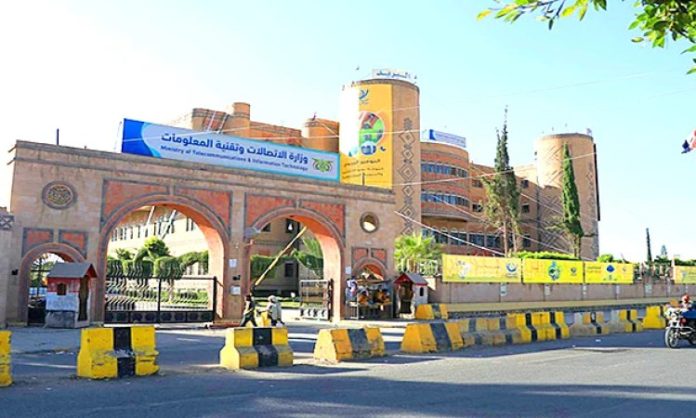Yemen, along with other countries, is commemorating the 56th anniversary of World Telecommunication and Information Society Day, which this year focuses on enhancing global connectivity, supporting international cooperation, and bridging the digital divide.
This event coincides with the significant challenges facing the country as a result of the ongoing aggression for more than a decade, which has severely impacted various social, political, economic, and development sectors.
The Ministry of Telecommunications and Information Technology in Sana’a issued a statement highlighting the extent of the destruction inflicted on Yemen’s telecommunications sector, reporting the loss of more than 35% of the infrastructure due to more than 2,770 airstrikes. These attacks have isolated more than 120 villages and cities from the world.
The statement reviewed the obstacles facing the technology sector due to the effects of the aggression and the blockade, which have prevented the full exploitation of available potential. It also noted the ongoing targeting of telecommunications stations and facilities and the ban on the entry of essential equipment, which has deprived the country of investment in submarine cables.
Despite these circumstances, the ministry affirmed that the telecommunications sector is working within its limited capabilities to bridge the digital divide and promote digital equality between genders, supporting international cooperation and achieving global connectivity.
The ministry declared its commitment to continuing efforts to improve telecommunications and internet services and enhance digital services through joint work with international and regional partners, as these services represent fundamental rights that enhance various sectors.
The statement also indicated the achievements made despite the significant challenges and high costs in recent years. These achievements have included ensuring the continuity of service provision to citizens throughout the country without exception. Efforts have focused on improving fixed and mobile internet services, deploying 4G and broadband networks, and adopting cloud computing technologies to enhance the spread of technology and support Yemeni society in using digital platforms and smart applications.
In a related context, the ministry called on the United Nations, the International Telecommunication Union, and international organizations to assume their responsibilities regarding the targeting of telecommunications infrastructure in Yemen. It also called for an end to the attacks and the lifting of the blockade on equipment needed to repair damaged sites and restore services in devastated areas.
The ministry stressed the need to pressure the Saudi-led coalition countries to allow the operation of the SMW-5 and Africa-1 submarine cables and the landing stations in Hodeida province, which are owned by Yemen, and to ensure the neutrality and protection of the telecommunications sector. It called for worker protection and the prevention of attempts to divide or harm the sector’s institutions.
The ministry placed full legal and moral responsibility on the coalition countries for the destruction of the telecommunications infrastructure and the resulting catastrophic humanitarian and economic repercussions. It also called on the international community and human rights organizations to work to ensure the continuity of telecommunications services, as they are a basic component of life for the civilian population, warning against the continued disregard for such humanitarian calls.




















